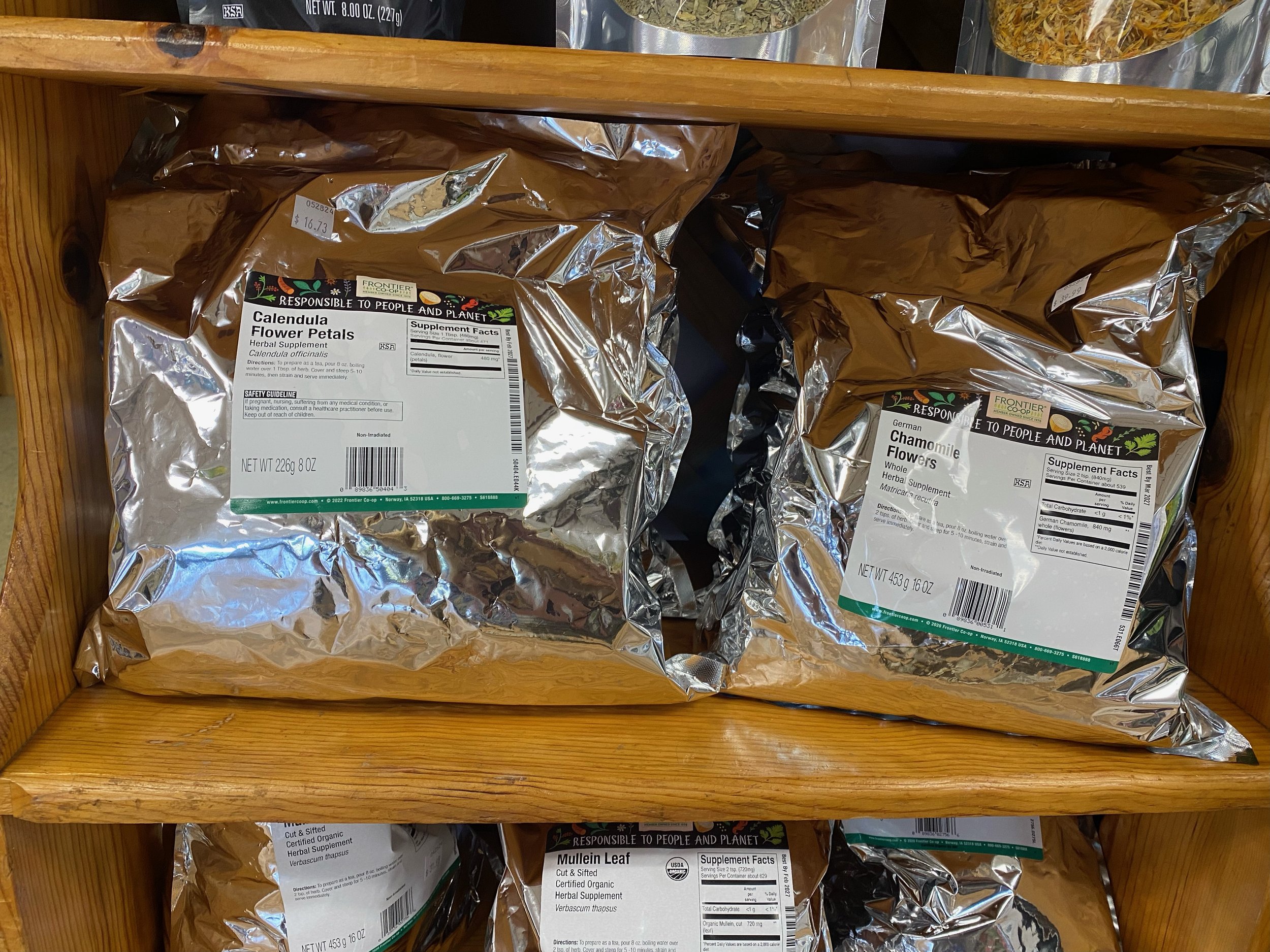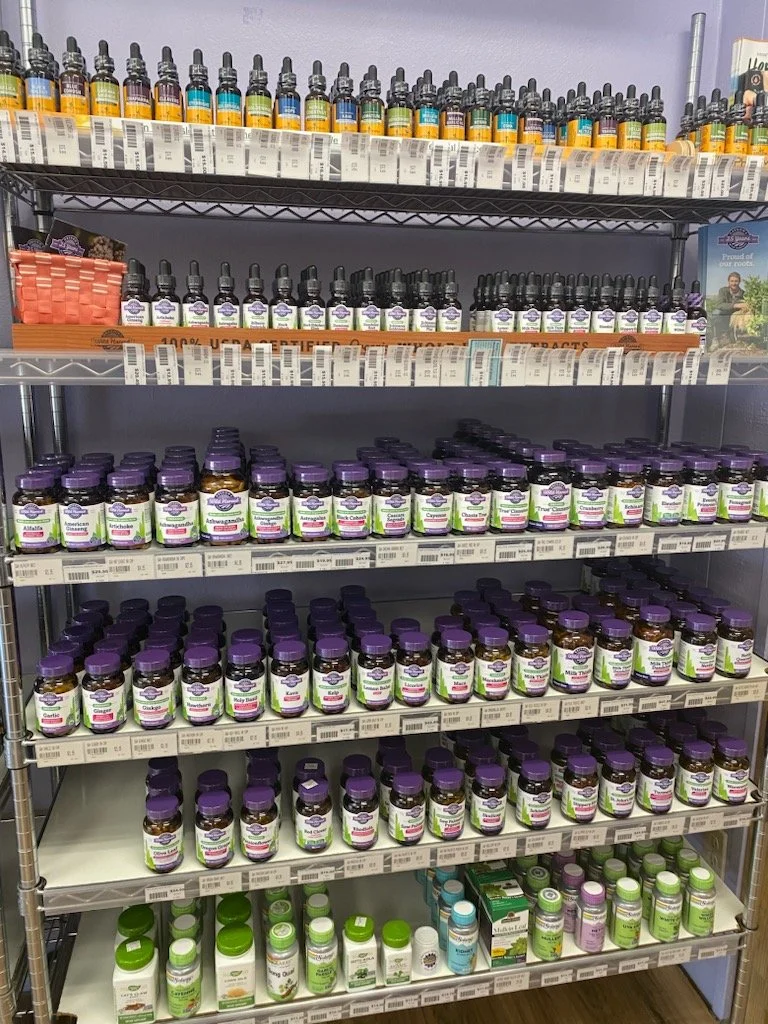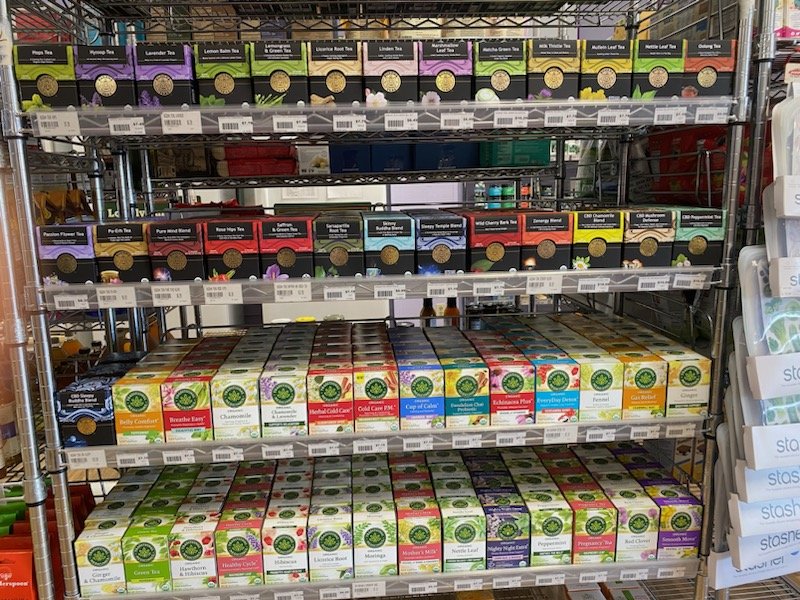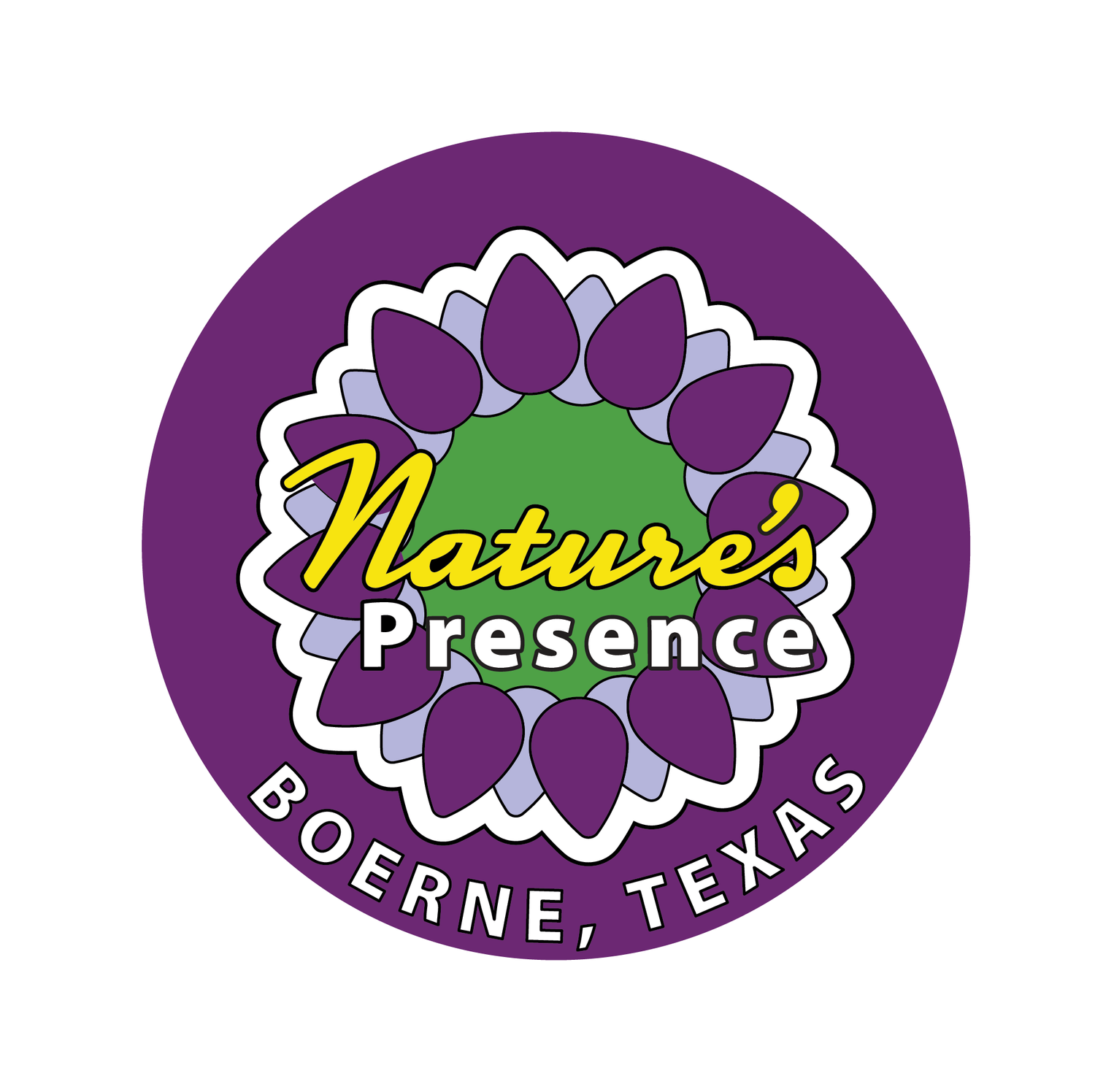Herbs and Herbal Teas
Which is Right For You?
Plant extracts
Fresh plant herbal extracts provide a liquid form of herbal supplements for those who have difficulty swallowing capsules. Liquid extracts are also more readily absorbed than encapsulated herbs, so they are faster acting. Extract production begins when the herbs are fresh and succulent. At that time, the plant’s cells are full of life and capable of releasing the many active ingredients available when extracted with alcohol. The concentration of plant material used in fluid extracts is expressed as weight to volume ratio, taking into account the moisture content of the individual plant. If an herb’s strength is 1:2, this means one part of herb extracted with two parts alcohol. To improve the taste of an extract, try taking with warm water or juice.
Alcohol-Free Extracts
One alternative to alcohol-based extracts are glycerites. As glycerin itself is not an effective solvent for most herbs, glycerites are made by first processing plant material with alcohol to capture the essence of that particular plant. The alcohol is then removed using a special process to preserve the integrity of the herb. Naturally sweet vegetable glycerin and natural fruit flavors are added to enhance flavor. This is an effective way to give herbs to children.
Encapsulated
Encapsulating herbs is one of the most convenient ways to consume herbal supplements. Herbs are dried, milled into a powder, and promptly encapsulated in preservative-free, preferably non-GMO vegetarian capsules. This immediate processing helps to maintain active plant ingredients, especially the volatile oils and tannins, which are notorious for degradation due to oxidation like coffee beans. Once ground, oxidation begins to degrade the flavor and quality. Herbal combinations consist of more than one herb and are formulated to provide synergistic nutritional support to specific systems in the body. combinations of herbs enhance, support, and increase the effectiveness of the primary herb.




